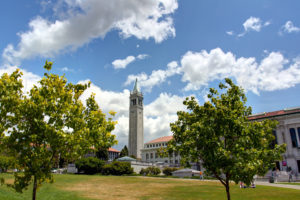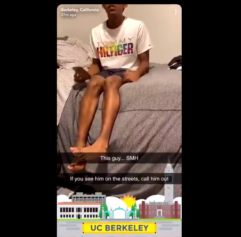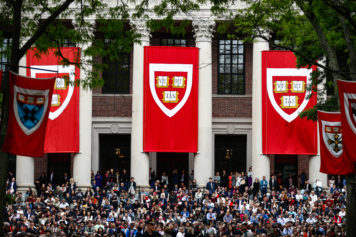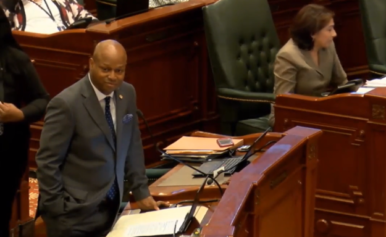To say that the amount of Black students at the University of California-Berkeley is small would be an understatement. African-Americans make up just 3 percent of undergraduate students and 4 percent of graduate students at Berkeley, an institution which is widely regarded as California’s top public university. That compares to the city of Berkeley’s Black population of 10 percent.
To increase the ranks of African-Americans on campus, both as students and as staffers—Blacks comprise just 2 percent of university faculty—UC Berkeley is launching an African-American initiative that aims to diversify the campus, develop a critical mass of Blacks in the student, faculty and senior staff populations, and make Black members of the community feel supported at the school.
According to a 2013 UC Berkeley campus climate survey, Blacks stand out as the group at the university who feel the most alienated. The survey also found that non-Blacks are more likely than Blacks themselves to think that UC Berkeley provides a welcoming environment for African-American students. Nearly 90 percent of whites and Asians at the university say that UC Berkeley provides a positive climate for Blacks, but fewer than 50 percent of Blacks said the same. The climate survey also found that African-Americans are routinely excluded from study groups and have lower graduation rates than other groups.
“The African-American population at UC Berkeley is the one that feels the least included. It’s not just students, but faculty and staff,” Gibor Basri, UC’s outgoing vice chancellor of Equity and Inclusion, told the Contra Costa Times. “During the last year, there have been much-highlighted discussions about race. We decided it was a good time to step forward with some specific actions to improve the situation on the Berkeley campus. We are being very public with the initiative in the hope that we can engage the black community and our black alumni in helping us to move these issues forward.”
A $20 million endowed scholarship fund for Black undergraduate students will be created as a result of UC Berkeley’s new African-American initiative. A task force of faculty, students and staff will monitor the initiative’s progress, according to the Times. The force will issue its first report in December and at that time may recommend new efforts or resources needed to execute the initiative’s goals.
Mansour Id-Deen, president of the NAACP’s Berkeley chapter, told the paper the group fully supports the initiative.
“The city and the university need to recapture the progressive thinking that they’ve had in the past,” Id-Deen said. “We want Berkeley to retake its rightful place in the progressive movement.”
The Times notes that the Berkeley NAACP also plans to launch a “Black Lives Matter” chapter on campus. The discussions about racial injustice that have dominated the headlines in light of high-profile killings of African-Americans by police prompted UC Berkeley to create its new initiative. The initiate also coincides with discussions about gentrification in the city of Berkeley.
The city’s Black population has waned with each decade. It was 20 percent in 1980, 13.6 percent in 2000 and 10 percent in 2010.
Additionally, the number of Black students at California’s public universities has dropped markedly since the passage of Proposition 209 in 1996. That ballot measure outlawed affirmative action in all state-run entities. Civil rights leaders and student activists have not only criticized Prop. 209 throughout the years but have held rallies to protest against the measure.
“I think it’s a very unfortunate piece of legislation,” Claude Steele, UC Berkeley’s executive vice chancellor and provost, told the Berkeley News. “But we have to operate under this constraint, and it gives us challenges that a lot of our private peers don’t have to deal with.”
Steele said that he opposed the legislation when it was proposed. While there’s no guarantee that Prop. 209 will ever be overturned, Steele said the university will continue to work to boost the numbers of Blacks on campus.
“For African-Americans, I think it’s likely that the climate and sense of inclusion would be much more healthy at double our current representation, so that it was similar to the state’s,” Basri added. “That’s what it was at Berkeley prior to Proposition 209.”



